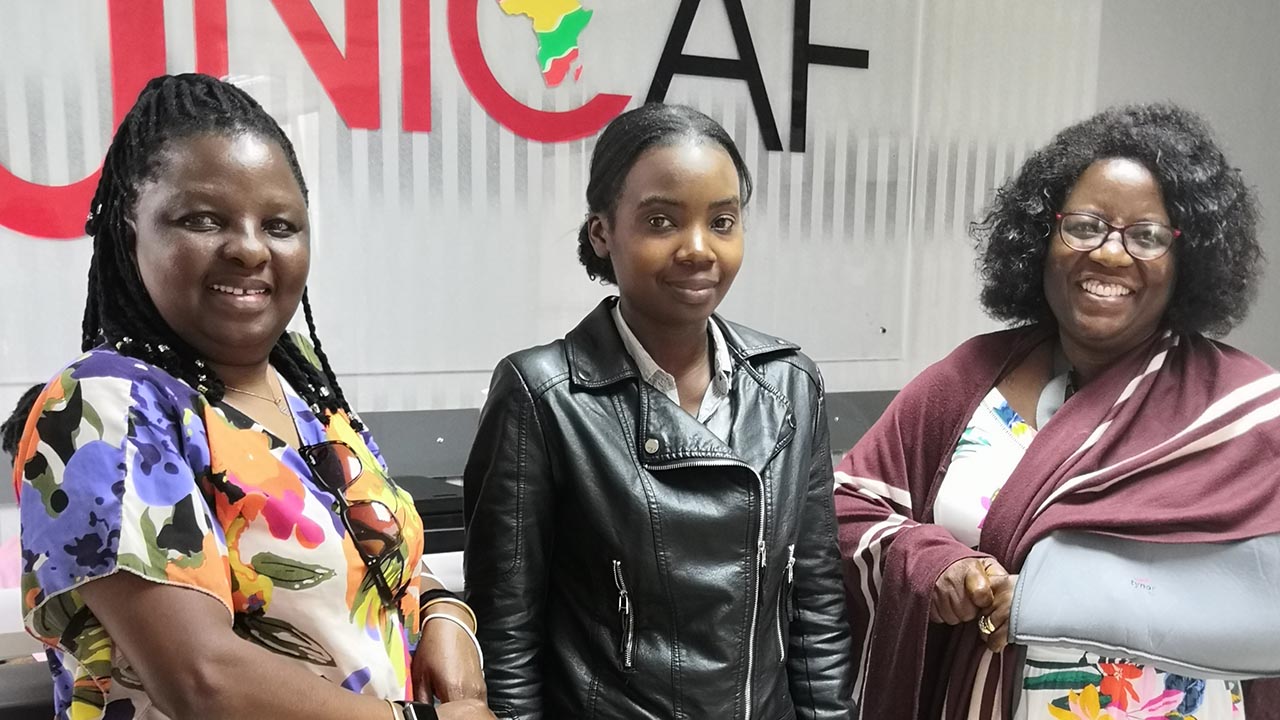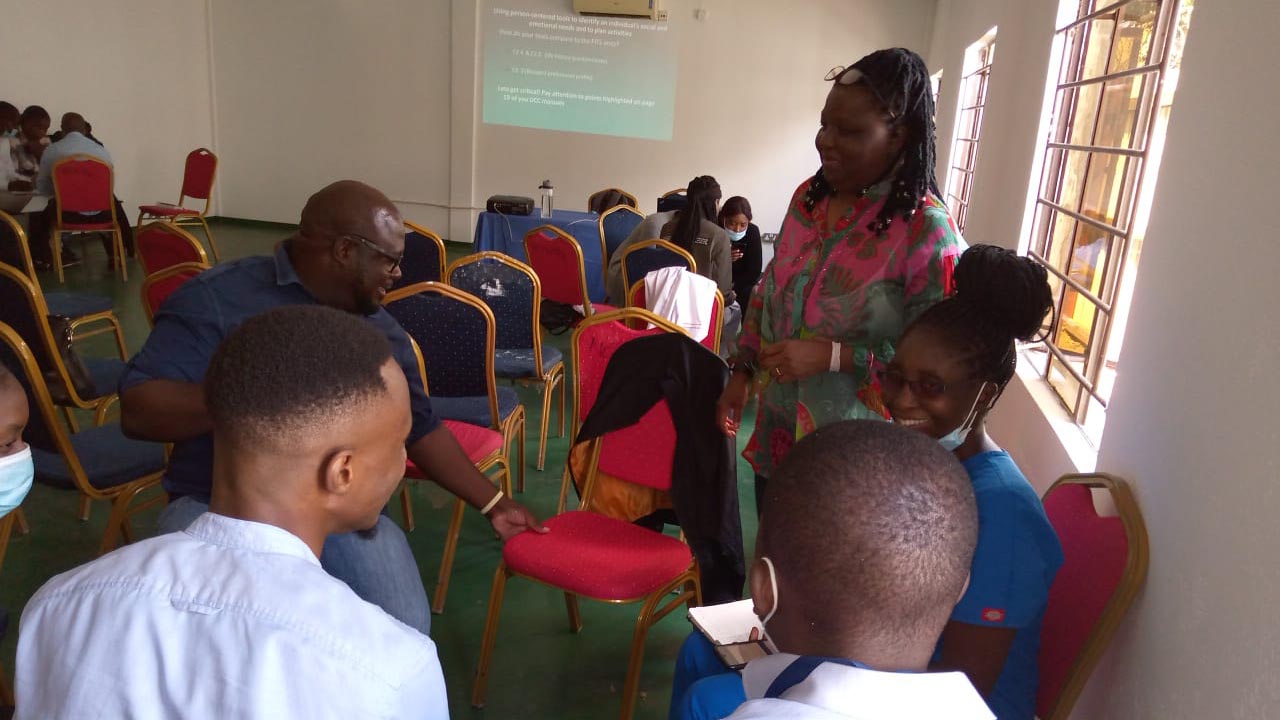Dr Clementinah Rooke
Senior Lecturer in Mental Health Nursing
Clementinah has a live interest and involvement in research and scholarly activity with a particular focus on patient public involvement, quality improvement, the impact of the built environment on health and wellbeing, salutogenic health design, lean health care and person-centred dementia care.
A University of Huddersfield academic is helping to improve the understanding and treatment of dementia in countries in southern Africa.
Dr Clementinah Rooke, Senior Lecturer in Mental Health Nursing, recently spent 10 days sharing her expertise in Zambia in the first-ever programme of its kind in the country and Africa. It is part of a drive to improve outcomes for people living with dementia there, with possible developments in the offing in Malawi and her native Zimbabwe.
As well as her professional interest, the project has a personal aspect for Clementinah. Her mantra is that “dementia is everyone’s business” and after her mother suffered from Alzheimer’s disease, Clementinah has helped her family to convert her mother’s old house into a day care centre in Bulawayo.
“This has come from my own passion to give to back to Africa and low to medium income countries,” says Clementinah. “That passion is heavily laden with us knowing so much about dementia in this country, where we have strategies and everything else. But we know that dementia statistics will be huge in low to medium income countries.
Understanding it as a neurodegenerative disorder is far away. Africa is 40 years behind what we do in the UK, but I am in an advantaged position and that is where I’m from. I have a different understanding of dementia, and I wanted to take it back there.
 Clementinah Rooke on the left alongside FITS researcher Emily, while on the right is Unicaf VC and Huddersfield alumna Dr Christine Mushibwe
Clementinah Rooke on the left alongside FITS researcher Emily, while on the right is Unicaf VC and Huddersfield alumna Dr Christine Mushibwe Challenging misconceptions about dementia
Clementinah won the Hennell Award, managed by the University of Worcester, for Innovation and Excellence in Dementia care in 2019 following a visit to Zimbabwe to raise awareness of the condition. The scale of the challenge can be seen by what dementia has traditionally been confused with.
“How people were talking about and where it comes from was totally different to how we understand it here in the UK,” Clementinah adds. “Is it witchcraft? Have you been bewitched? Are you of a sinful nature so that you are being punished for what you have done.”
During her recent visit to Zambia, Clementinah led a series of lectures for a cohort of 26 healthcare professionals and carers who she will support remotely following her return to the UK. The attendees will be certified as Dementia Care coaches from Huddersfield, Unicaf University in Zambia and the Kanyama General Hospital in the country’s capital Lusaka.
Huddersfield has signed Memorandums of Understanding with both institutions, and Unicaf Vice-Chancellor Christine Phiri Mushibwe is a Huddersfield alumna, having achieved her PhD there in 2009.
Understanding each individual patient is crucial
“Many of the doctors I met would prescribe medicines to manage behavioural problems and dementia,” says Clementinah. “It was very useful to engage with them as now the pen will not immediately go down to prescribe an anti-psychotic drug. These drugs are known for their harsh nature, they increase chances of getting a stroke, infections or even death.
“These drugs can result in more of a public health problem. This programme, known as Focus Interventions Training and Support – FITS - comes from the need to reduce their use and interventions. They won’t just defer to prescribing them now, as we looked at other ways of dealing with dementia.
“We looked at understanding someone’s own history. Like if a patient liked reggae or going for walks, then we can help by understanding what they are going back to within themselves to enjoy or remember.
 Clementinah Rooke speaks to a group of the FITS cohort in Zambia
Clementinah Rooke speaks to a group of the FITS cohort in Zambia'Humbling' visit will lead to similar projects across southern Africa
“My Mum had dementia and would talk about seeing a path in her old village, so my sister and I would work with her on that. The moment where you engage with them then distract them rather than them fighting that memory. You are there with them in a way, so they are calmer and happier.”
The results of less use of anti-psychotic drugs and more understanding were apparent to Clementinah before the end of her visit to Zambia. She was invited to consult with carer givers and patients on the last day.
“I could see patients who were calmer, and I encouraged an interest in the lives of the patients. One lady would try to leave as she used to work in a market, so I suggested they keep a diary of what times of day she wanted to go and kind of ‘go’ with her.
“These psycho-social interventions are simple and low key, and they had a real impact that was apparent quite quickly.
“This point was well received by the trainees I worked with. Nurses and physiotherapists were also there, and saw how this could work.”
The programme has already had an impact, and Clementinah is hopeful of linking up with universities in Malawi, Zimbabwe and possibly South Africa.
“The feedback from group in Zambia has been very good, “ she adds. “People told me they would take a different approach, even to how they deal with their own relatives with dementia. It was humbling.”
